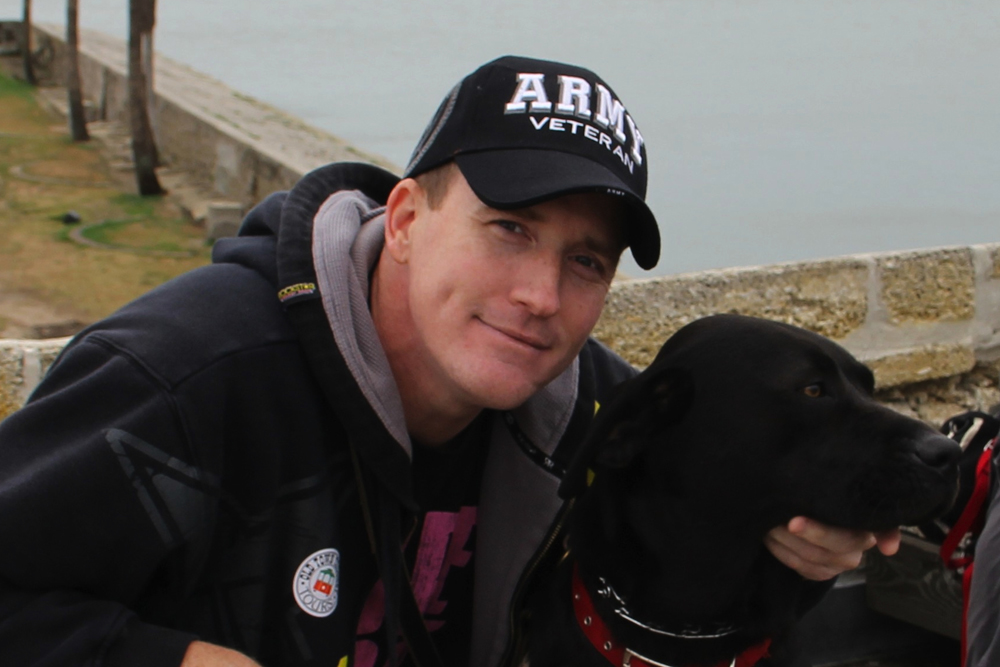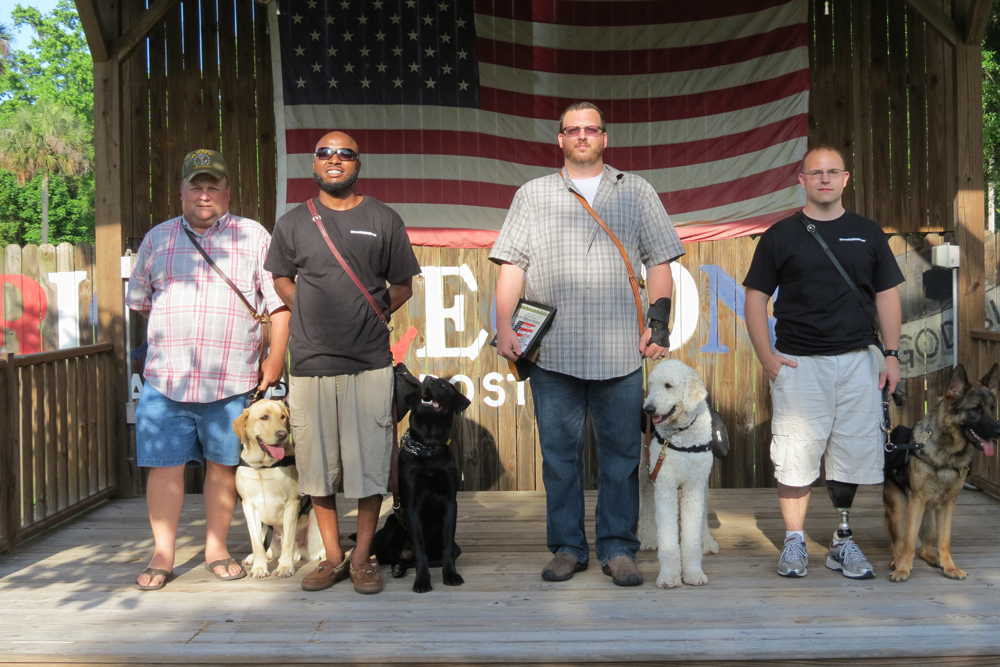
Dogs Become New Treatment for a War that Never Ends (Op-Ed)

Vanessa Woods is a research scientist at Duke University and the co-founder of Dognition, a website that helps owners find the genius in their dogs. She is also the co-author of the New York Times Bestseller The Genius of Dogs. She contributed this article to LiveScience's Expert Voices: Op-Ed & Insights.
Today marks the 12th anniversary of the Sept. 11 attacks. The United States has been at war ever since. For many U.S. military personnel who return from war zones, another type of combat awaits. The Dognition citizen science project is working with veteran support groups to help veterans better understand their dogs and raise awareness about how dogs can help veterans returning from combat with post-traumatic stress disorder (PTSD).
As the child of a veteran, I know that war transcends time and geography. I remember my father cowering on the ground during New Year's Eve fireworks. Nights with barricades built from furniture in the bedroom. Refuge in alcohol, which was really no refuge at all. A string of failed marriages and finally, leaving us for various countries around Vietnam, his own ground zero.
There is no magic treatment for PTSD. The road to recovery is long, and sometimes there is no recovery at all. Depending on the study referenced, anywhere between 10 percent and 40 percent of returning veterans have PTSD. Symptoms include aggression, depression, panic attacks and memory loss. Every 65 minutes, a veteran commits suicide, according to the U.S. Department of Veterans Affairs —most likely, they were suffering from PTSD or traumatic brain injury.
Throughout every remedial program imaginable, my father seemed to gravitate toward a treatment that is becoming increasingly popular, requires no drugs, has no side effects and which many veterans already have. My father always had dogs. He seemed most at peace on his early morning walk, hands clasped behind his back and a dog trotting happily by his side. He was his most unguarded when he held a furry head between his hands, speaking affectionate nonsense.
For those returning from a battlefield, human relationships are loaded with complications. Our relationship with dogs is love at its simplest.
It's not surprising, then, that dogs may be a powerful tool in reducing the effects of PTSD. Studies have shown that playing with and petting a dog, or even staring into a dog's eyes, releases oxytocin, the hormone associated with feelings of love, pleasure and affection. In veterans, research has shown oxytocin decreases the physiological response to combat memories.
Sign up for the Live Science daily newsletter now
Get the world’s most fascinating discoveries delivered straight to your inbox.
Dogs have the potential to do far more. Initial studies by the Psychiatric Service Dog Society found that 82 percent of dog handlers with PTSD reported a decline in symptoms after working with the canines. Dogs can be trained to do a variety of tasks, including safety-checking a room, reminding their owners to take their medication — and if the owner is having nightmares, their dog can even turn on the lights and wake them up.

Dognition, our Web-based citizen science project, is working with veteran support groups like Wags4Tags to help veterans understand their dogs. The assessment includes 10 cognitive games, many of which we have already used with military bomb-detection dogs. The games are designed to uncover the cognitive strategies a dog uses to solve problems. The games will help veterans bond with their dogs and build a better relationship based on a new understanding. This should make it even more likely that the dogs will have a beneficial effect on their owners.

The advantages to having dogs assist veterans with PTSD seems obvious, but obtaining funds to train the dogs is difficult. K9s for Warriors estimates that it costs $10,000 to train each dog. Dognition is helping Animal Fair raise awareness for K9s for Warriors, which provides therapy dogs to veterans with PTSD. K9s for Warriors rescues dogs prior to being euthanized and trains them to assist veterans with PTSD and traumatic brain injury. From September through November, Animal Wise founder and animal advocate Wendy Diamond has organized 10 fundraisers in 10 cities. K9s for Warriors has enlisted the crowdsourcing website Crowdrise and has already raised more than $85,000. There has never been a better opportunity to help veterans in need.
Our relationship with dogs is so extraordinary that it can change our very biochemistry. It is not such a stretch to imagine that the relationship may also help heal the invisible wounds of those returning from active duty. Veterans returning from war zones face many challenges and an uncertain future. Hopefully, dogs can become a part of the healing process.
Wags4Tags and K9sforWarriors are both organizations who rescue dogs from no-kill shelters and pairs them with psychologically impaired veterans. K9s forWarriors will be hosting Bark Breakfasts with celebrity Wendy Diamond from September through November.
The views expressed are those of the author and do not necessarily reflect the views of the publisher. This version of the article was originally published on LiveScience.










